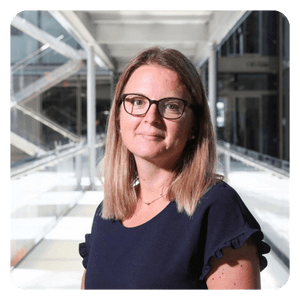Stéphanie P. Lacour is full professor at the School of Engineering at the Ecole Polytechnique Fédérale de Lausanne. She received her PhD in Electrical Engineering from INSA de Lyon, France, and completed postdoctoral research at Princeton University (USA) and the University of Cambridge (UK). She joined EPFL in 2011. She is a co-founding member and current director of EPFL Center for Neuroprosthetics, located at EPFL satellite – Campus Biotech in Geneva.
She is the recipient of the 2006 MIT TR35, the 2011 Zonta award, and she was selected as one of the 2015 WEF Young Global Leaders. She was awarded the ERC Starting Grant (2011), ERC POC Grants (2016 & 2018) and the SNSF Consolidator grant (2016).
Abstract – Neuroprosthetic medicine: innovation, interdisciplinarity and translation
Conditions affecting the health of the nervous system emerge throughout life in forms of traumatic injuries, neurological and psychiatric disorders. Neuroprosthetic medicine aims to offer therapeutical solutions that alleviate symptoms and restore impaired functions to patients suffering from such traumas and disorders.
The most successful neuroprosthetic device developed to date is the cochlear implant with more than 730’000 patients (adults and children with hearing impairment) implanted worldwide. Many other conditions such as paralysis, blindness or neurodegenerative diseases can benefit from innovative neurotechnologies. Their translation to clinical reality calls for interdisciplinary teams, deep understanding of biological processes, personalized and reliable manufacturing, stable performance and adoption by the clinicians for the patients’ benefits. These enabling and integrated components of neuroprosthetic medicine will be illustrated with the recent demonstration of implantable neuroprosthetics to reverse paralysis.

